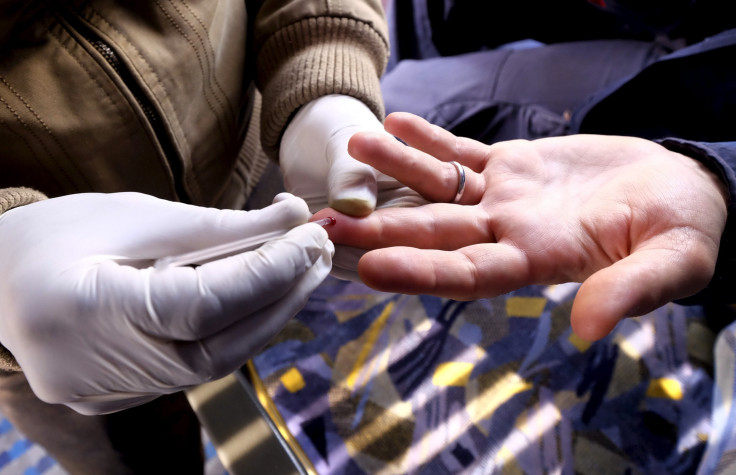HIV Virus Test On A USB Stick: Scientists Develop Portable Device To Check Blood For HIV Levels

Scientists have developed a type of human immunodeficiency virus (HIV) test using a USB stick that uses a drop of blood to test for the virus, providing a fast and highly accurate assessment of the amount of virus present in the patient’s bloodstream.
Scientists from Imperial College London and the privately held U.S. firm DNA Electronics developed the mechanism which, with the help of the blood drop, creates an electrical signal that can be read by any computer or handheld device.
While undergoing HIV treatment, patients require regular monitoring of the virus levels, which is usually carried out with a large laboratory device and takes at least three days to process. The development of a small, handy gadget can make the process much easier, especially in remote areas with limited medical infrastructure like sub-Saharan Africa.
“The challenges that inaccessible, and often unaffordable, viral load technologies pose to the delivery of high quality care for HIV-1 patients are now well recognized, and improving diagnostics is now a key part of global strategies to combat the infection,” the scientists said in the study, published in the journal Scientific Reports.
Graham Cooke, who co-led the research from the college’s department of medicine, said in a press release: “Monitoring viral load is crucial to the success of HIV treatment. At the moment, testing often requires costly and complex equipment that can take a couple of days to produce a result. We have taken the job done by this equipment, which is the size of a large photocopier, and shrunk it down to a USB chip.”
The test uses a mobile phone chip to take a drop of blood, which is placed at a spot on the USB stick. The detection of HIV in the sample triggers an acidity change, which is transformed into an electrical signal by the chip. This signal is sent to the USB stick, showing the result on a computer or electronic device.
Of the 991 samples of blood that the researchers tested for the study, the accuracy rate stood at 95 percent. The average time that the test took was 20.8 minutes. There is no need for any refrigeration or a steady power supply, making the test more viable for remote locations.
Almost 36 million people are infected with HIV, which causes AIDS, across the world. A majority of them live in sub-Saharan Africa.
© Copyright IBTimes 2025. All rights reserved.






















